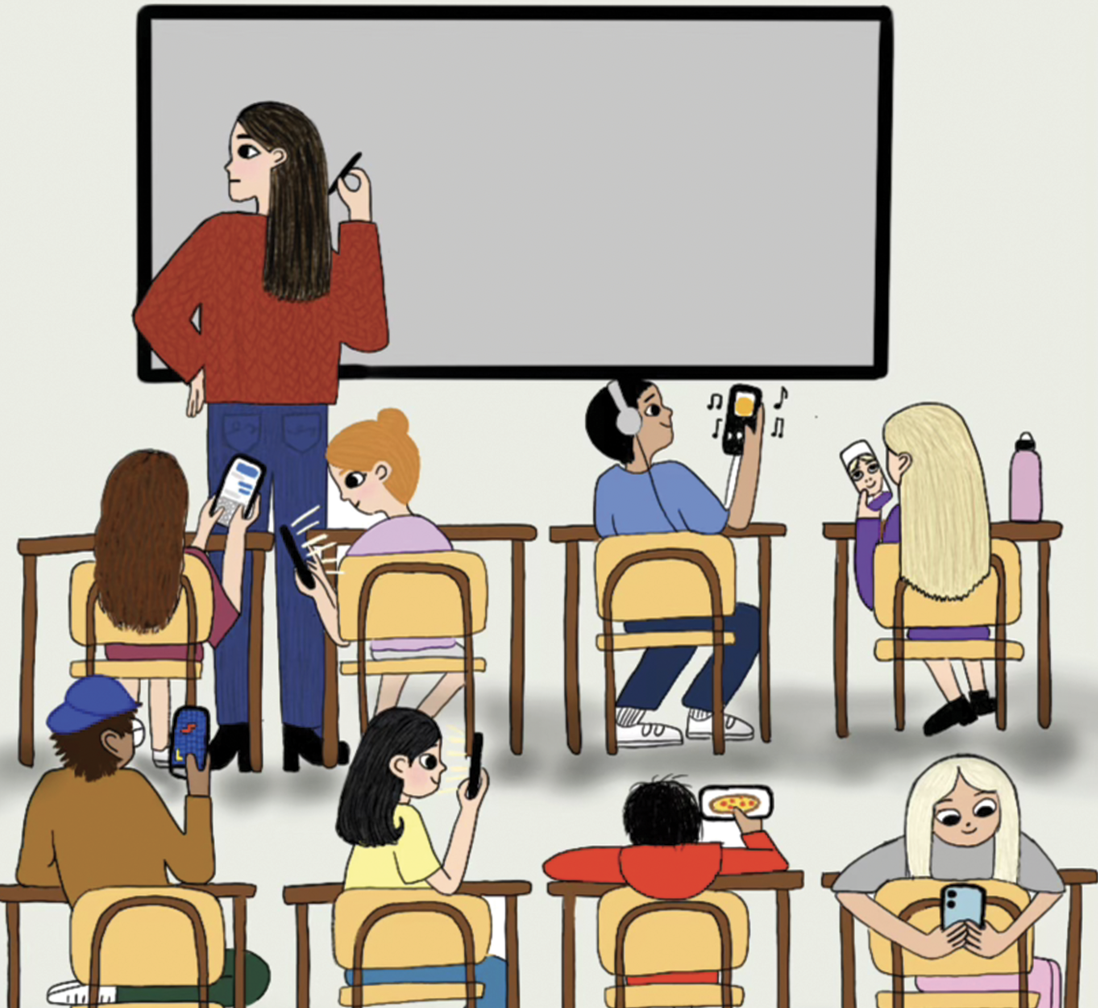The Florida legislature passed a bill on July 1 prohibiting the use of phones during instructional time in public schools for grades K-12. The bill authorizes teachers to confiscate a student’s device if it is being used inappropriately during class time or if the teacher chooses to collect phones prior to class starting. The law requires public school districts to prohibit students from accessing social media platforms while connected to the school’s internet. Public schools are required to teach students of all grades about the social, emotional and physical effects of social media use.
When students divide their attention between two things, it affects their long-term retention, said Arnold Glass, professor of psychology at Rutgers University.
“The whole point of sitting in a classroom is to retain long-term what’s going on in the classroom,” said Glass. “That’s fundamentally why you’re there. So if you’re engaging in an activity where you’re dividing attention, you’re guaranteeing you’re not going to remember what happened in the classroom. You’re defeating the whole purpose of being there.”
According to Olivia Pistryak, junior at Beachside High School in St. Johns, Florida, “I definitely could see the benefits of [implementing the bill] with limiting the distraction, but I also felt like it was a little bit of freedom taken away.”
In harder classes, such as math, Pistryak finds herself paying more attention because there is nothing distracting her, but during study halls and classes where she does not know anybody, not having her phone can make her anxious, she said.
According to Melissa Huey, assistant professor of psychology at the New York Institute of Technology, she was happy to hear Florida had passed the bill because phone use is a distraction from students’ ability to stay engaged and mindful in the classroom.
“I think students need to work on social interactions and relations with peers and figuring out a way to work with humans,” Huey said.
A spokesperson for Gov. J.B. Pritzker said in an email corespondence that no one has introduced a similar bill in Illinois.
Representatives from Florida’s legislature did not respond to repeated email and phone requests for interviews.
Certain apps, like TikTok, do not work on Pistryak’s school internet, and a lot of students have downloaded VPNs to get past the school’s Wi-Fi in order to have access to restricted apps, she said.
According to Huey, she fully supports that students do not need their smartphones in the classroom.
“If there’s an emergency, you’re in a school setting with teachers, principals [and] structures that are in place that are supposed to help you in those situations,” Huey said.
According to Glass, the use of cellphones in class can impact both the students on their phones and the people around them.
“If some students in class are using their phones, all the students’ grades go down,” said Glass. “Even if they don’t pick up their own phone, the fact that next to them the person is on their phone causes their grades to go down.”


